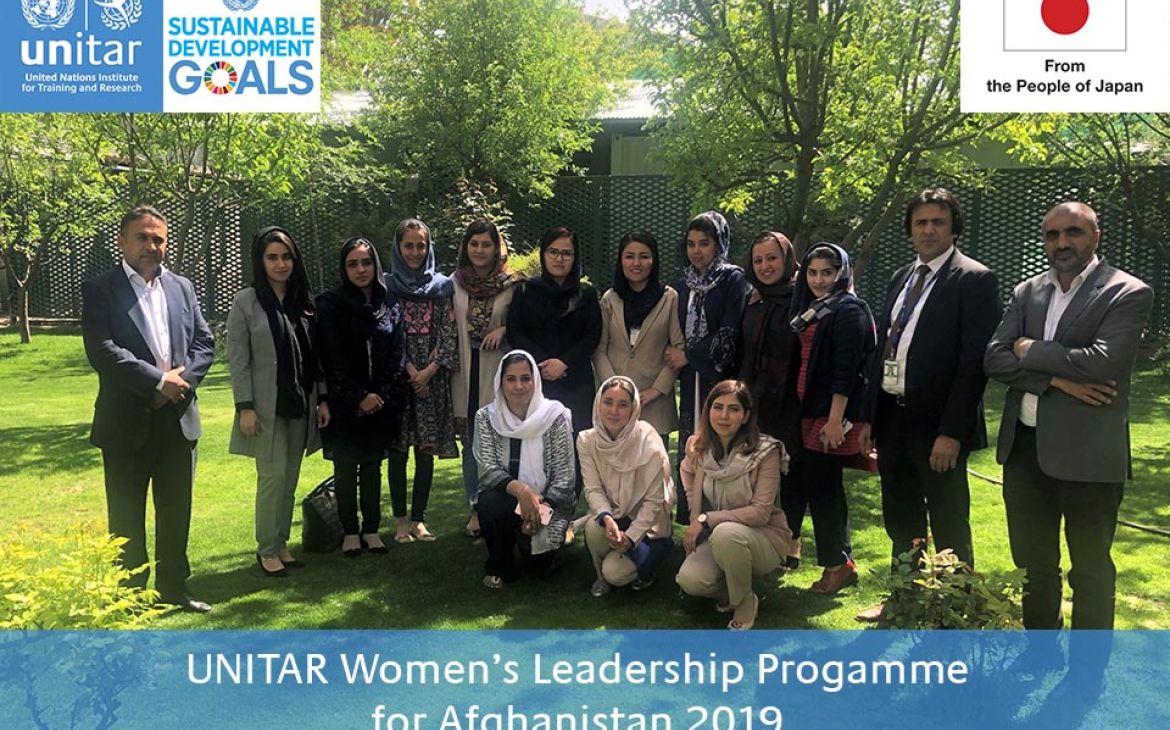22-23 April 2019, Kabul, Afghanistan - Afghanistan is full of opportunities for dedicated young professionals looking to help their country. In particular, women know that it’s time for them to take the lead and ensure that development initiatives extend to every single member of their communities.
The UNITAR Women’s Leadership Programme for Afghanistan: the SDGs, Action Plans and Governance offers tools and expertise that will help them to do so.
One of the participants, Ms. Masouma Rasouli, Deputy at the Women Empowerment for New Horizon Organisation NGO, is excited about the programme and how it can support her and her organisation to achieve the Sustainable Development Goals (SDGs), especially gender equality, in the vast number of communities across the country.
The programme’s second cycle launched with workshop I, held on 22-23 April in Kabul, Afghanistan. Organized by the United Nations Institute for Training and Research (UNITAR) Hiroshima Office in partnership with the United Nations Development Programme (UNDP) Afghanistan, the programme is made possible with support from the government and people of Japan.
The programme’s workshop I offered training on good governance and the SDGs in the context of Afghanistan, particularly through a gender lens. In addition to UNITAR staff, Resource Persons — Afghan Ministry of Finance Director of Aid Management Salma Alokozai, UNDP Afghanistan Programme Officer Abdul Ghani Amin, and Afghan Ministry of Finance Public-Private Partnership Planning and Development Director Lema Kurram — led some of the sessions and provided Afghanistan-specific insight throughout the workshop.
Participant Ms. Tahira Subhani, Business Development Officer at Fakhira Momtaz, found deep value in the relevance of the topics covered in the first workshop, and was encouraged that the experts were young, knowledgeable professionals working directly on these critical issues with the government.
Selected through a rigorous application and interview process, the 15 participants hail from Afghanistan’s public and private sectors, as well as academia and civil society. Through forging relationships and gaining insight into other sectors, the participants will finish the training with an even more nuanced understanding of how to effect change.
Ms. Sahel Sahar, a participant who is a Gender Focal Point at the Ministry of Women’s Affairs, shared that the broad spread of participants from different organisations, sectors and regions, brings a depth of experience and motivation which collectively strengthens their self-confidence to actively work for their rights.
Participants from the programme’s first cycle in 2018 found the training extremely useful. Many reported to UNITAR about initiatives they implemented following the training, which include encouraging gender balance in their organization, establishing an employee appraisal and discipline system, identifying initiatives and developing successful proposals, and providing a multiplying effect by delivering training to their colleagues.
With a number of second-cycle participants holding managerial or instructor positions, they will have many opportunities to share their knowledge with colleagues and students, amplifying the programme’s impact. As the number of Women’s Leadership Programme alumni steadily grows, UNITAR looks forward to seeing what impacts they have on their workplaces and communities.


